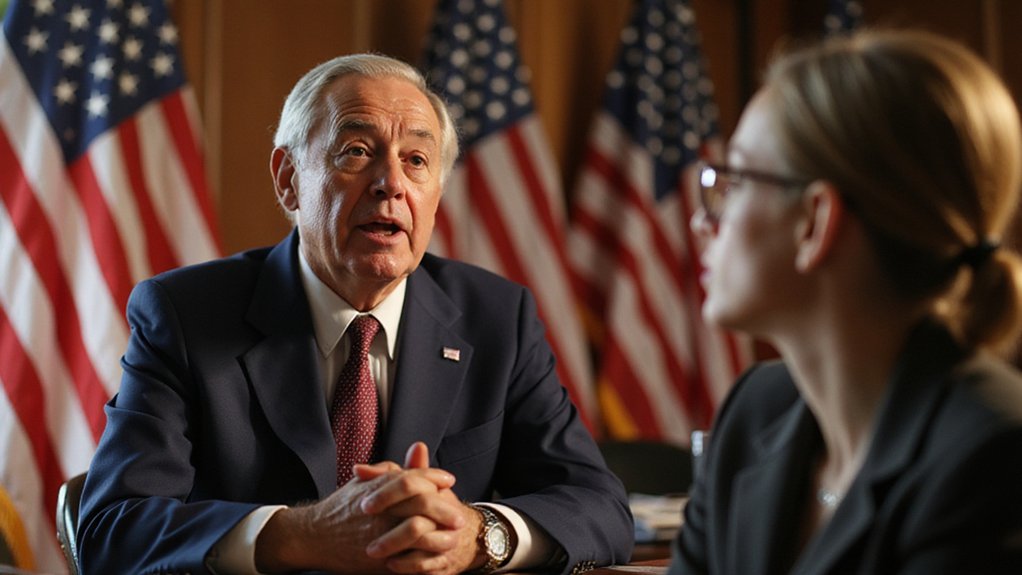In yet another calculated maneuver to reshape the Federal Reserve’s composition—and perhaps its philosophical underpinnings—President Trump has nominated Stephen Miran, a Harvard-educated economist and former chair of his White House Council of Economic Advisers, to fill a temporary four-month vacancy on the Fed’s board of governors.
This appointment, requiring Senate confirmation, would allow Miran to serve until January 31, 2026, replacing Biden appointee Adriana Kugler in what amounts to Trump’s first opportunity to influence Federal Reserve leadership during his current term.
The nomination arrives amid Trump’s increasingly vocal criticism of Fed Chair Jerome Powell, whom he recently characterized as a “stubborn MORON” on social media for maintaining unchanged short-term interest rates.
Such colorful rhetoric underscores the president’s frustration with what he perceives as Fed inaction during a period of persistent inflation concerns—though one might question whether public name-calling constitutes ideal monetary policy discourse.
Presidential Twitter tantrums hardly constitute sophisticated monetary policy dialogue, regardless of one’s economic frustrations with Federal Reserve decision-making.
Miran brings impressive credentials to this temporary role, having served with distinction throughout Trump’s first administration before joining the second term’s economic team from its inception.
His academic pedigree and policy experience position him as a natural advocate for Trump’s economic philosophy, particularly regarding income tax cuts as growth catalysts and tariff hikes as deficit-reduction mechanisms through enhanced economic expansion.
Perhaps most intriguingly, Miran has consistently downplayed inflation risks associated with Trump’s proposed tariffs, arguing that the president’s economic views—initially met with skepticism—are experiencing vindication over time.
This perspective aligns seamlessly with Trump’s broader agenda of reshaping federal economic policy apparatus, even if the four-month term limits immediate influence. The Fed recently maintained its key interest rate at 4.3% for the fifth consecutive time, despite mounting pressure for adjustments.
The appointment’s temporary nature reveals its strategic purpose: providing Trump with immediate Fed representation while conducting a broader search for long-term board members.
This stopgap measure fills the shift gap left by Biden-era governance while signaling Trump’s intent to alter Fed policy direction.
The nomination inevitably raises questions about Federal Reserve independence versus political influence—a debate that will likely intensify during Senate confirmation proceedings. The appointment process faces challenges from the regulatory patchwork that characterizes oversight of financial institutions across different jurisdictions.
Whether Miran’s brief tenure can meaningfully impact monetary policy remains uncertain, though his appointment certainly establishes precedent for future Fed nominations under Trump’s evolving economic vision.






